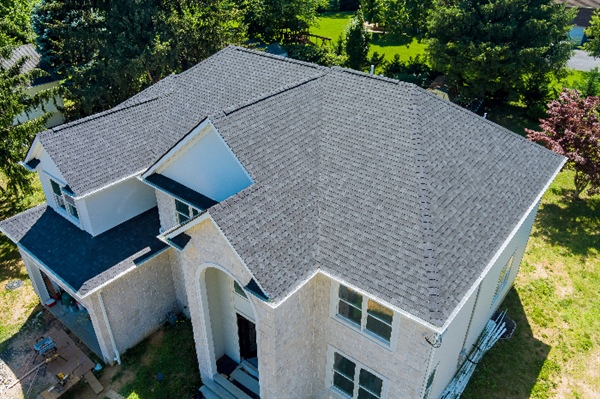Top Roofing Materials for Minneapolis Winters: Durable Options for Harsh Weather

When winter arrives in Minneapolis, having a durable roof that can withstand extreme cold and heavy snow is crucial. The city's harsh winters can take a toll on roofing materials, leading homeowners to seek options that offer lasting resilience against the elements.
This article will explore some of the most robust roofing solutions and materials that can handle the demanding winter conditions in Minneapolis. We’ll discuss how asphalt shingles perform in extreme cold and snow, the benefits of metal roofing in snowy climates, and whether rubber roofing provides sufficient winter durability.
We’ll also explain how different materials respond to freeze-thaw cycles and the overall lifespan of each roofing type when exposed to tough winters. Keep reading to know which roofing materials provide the most reliable protection during the winter months!
How Does Asphalt Shingles Perform in Extreme Cold and Snow Conditions?
Asphalt shingles are a popular choice for many homeowners due to their affordability and ease of installation. In cold climates like Minneapolis, they must handle severe cold and heavy snow. Typically, asphalt shingles are made to be flexible and durable, which helps them resist cracking under the pressure of snow buildup and subzero temperatures.
One of the main concerns with asphalt shingles in winter is their performance during freeze-thaw cycles. These cycles can cause shingles to expand and contract, which may lead to warping or damage over time. However, high-quality asphalt shingles, such as those offered by Allied Construction, often come with added protection layers to improve their resistance to cracking and water infiltration.
Homeowners in snowy areas will also benefit from shingles designed to shed snow effectively. Proper installation, along with durable materials, helps ensure that asphalt shingles can perform well even in extreme weather conditions.
What Are the Benefits of Metal Roofing in Snowy Climates?
Metal roofing is gaining popularity in snowy regions because of its durability and ability to shed snow efficiently. Unlike traditional materials, metal roofs are less likely to allow snow to pile up, which reduces the risk of leaks and structural damage. The smooth surface of metal roofing helps snow slide off easily, preventing ice dams and excessive weight on the roof.
Another advantage of metal roofing is its resistance to temperature fluctuations. Metal can endure rapid changes in temperature without cracking or warping, making it ideal for the Minneapolis freeze-thaw cycles. With proper insulation, metal roofs can also help keep homes warmer during the winter by reflecting heat into the building.
Is Rubber Roofing a Good Option for Winter Durability in Minneapolis?
Rubber roofing, or EPDM (Ethylene Propylene Diene Monomer), is often used for flat or low-slope roofs. This material is flexible and durable, offering excellent resistance to cold weather. Rubber roofing can handle extreme temperatures without becoming brittle, which helps prevent cracking and leaks during the winter months.
While rubber roofing may not be as common for residential homes, it's a reliable roofing option for commercial buildings or areas where flexibility and water resistance are key. In snowy regions, rubber roofs can handle moderate snow loads and provide strong insulation to maintain indoor warmth.
Allied Construction offers rubber roofing as part of its range of durable winter-ready materials. Whether for residential homes or commercial properties, rubber roofing is always a solid choice for Minneapolis winters.
How Do Different Roofing Materials Handle Freeze-Thaw Cycles?
The freeze-thaw cycle is a critical factor in roof durability, especially in climates like Minneapolis, where temperatures fluctuate significantly. Asphalt, metal, and rubber roofs all respond differently to these conditions. Asphalt shingles can expand and contract, which might lead to minor damage over time if not installed with proper flexibility considerations.
Metal roofs, on the other hand, excel at withstanding freeze-thaw cycles. Their rigidity and resistance to thermal expansion reduce the risk of cracking and leaking. Metal is particularly well-suited for areas with heavy snow and ice, as it can endure shifts in temperature without damage.
Rubber roofing is also highly resilient to freeze-thaw cycles due to its elasticity. It expands and contracts easily, making it less prone to cracking. This flexibility makes rubber roofing a great option for residential and commercial properties exposed to extreme cold.
What Is the Lifespan of Various Roofing Materials When Exposed to Harsh Winter Weather?
Roofing materials’ longevity depends on both the material itself and the quality of installation. Asphalt shingles generally last between 20 to 30 years with proper maintenance. However, exposure to harsh winters may reduce their lifespan if they are not high-quality or installed correctly.
Metal roofs are among the longest-lasting materials, with lifespans ranging from 40 to 70 years. They are highly durable and can handle the stress of winter weather with minimal maintenance. Their natural resistance to snow, ice, and temperature changes makes them a reliable option for long-term performance.
Rubber roofing can also offer a long lifespan, typically around 30 to 50 years, when well-maintained. Its flexibility and water resistance contribute to its durability, making it a good choice for properties facing winter extremes.
Upgrade Your Minnesota Roof With Allied Construction!
Choosing the right roofing material for Minneapolis winters is essential to protect your home from nature's harsh elements. Whether you choose asphalt shingles, metal, or rubber roofing, each material offers unique benefits suited to snowy, cold climates.
At Allied Construction, we provide expert roofing services to help homeowners make the best choices for their properties. To learn more about our roofing solutions and how we can assist you in preparing for winter, reach out to Allied Construction to schedule a free home inspection or call us at 952-737-8496 for personalized advice on durable roofing options. You can also reach us out online.